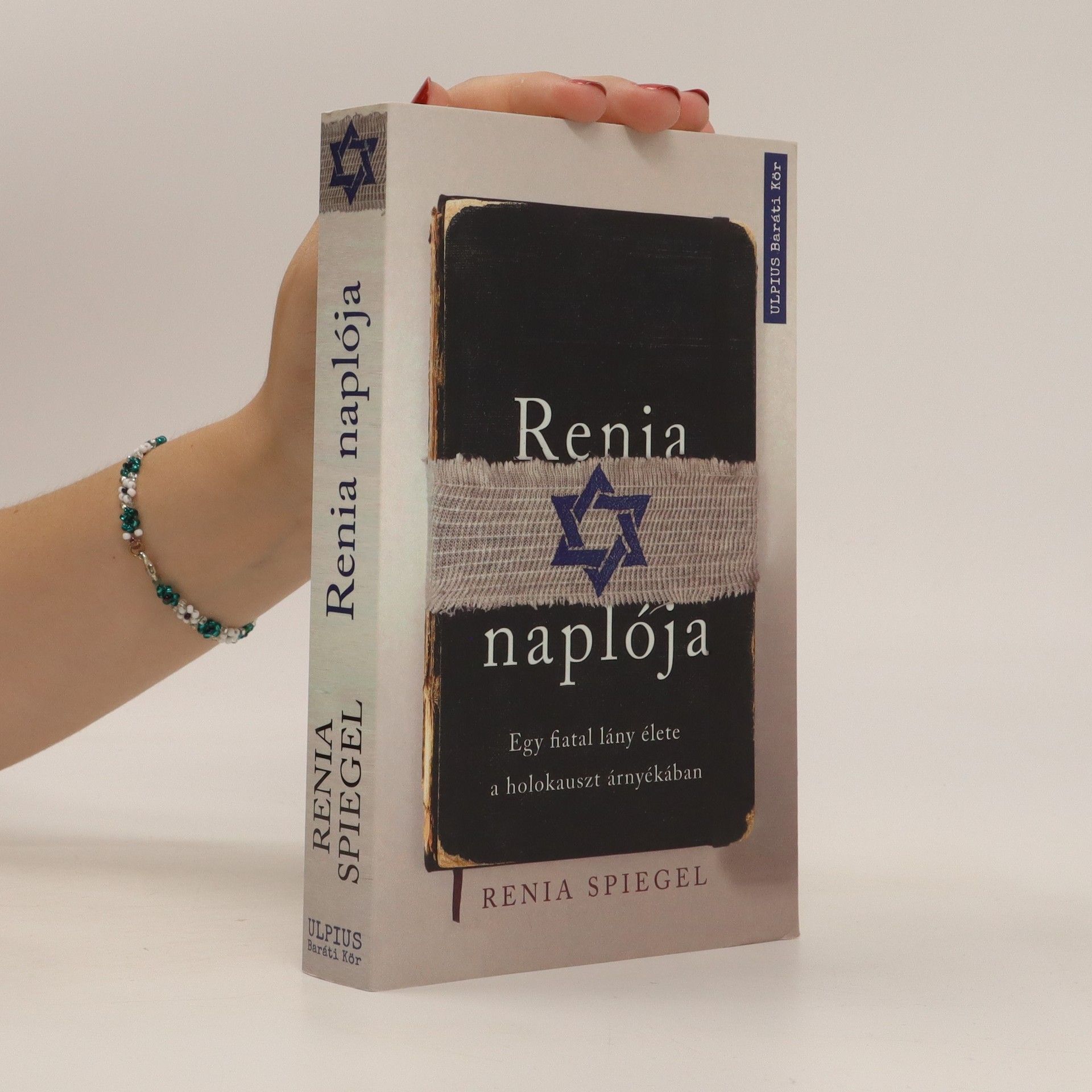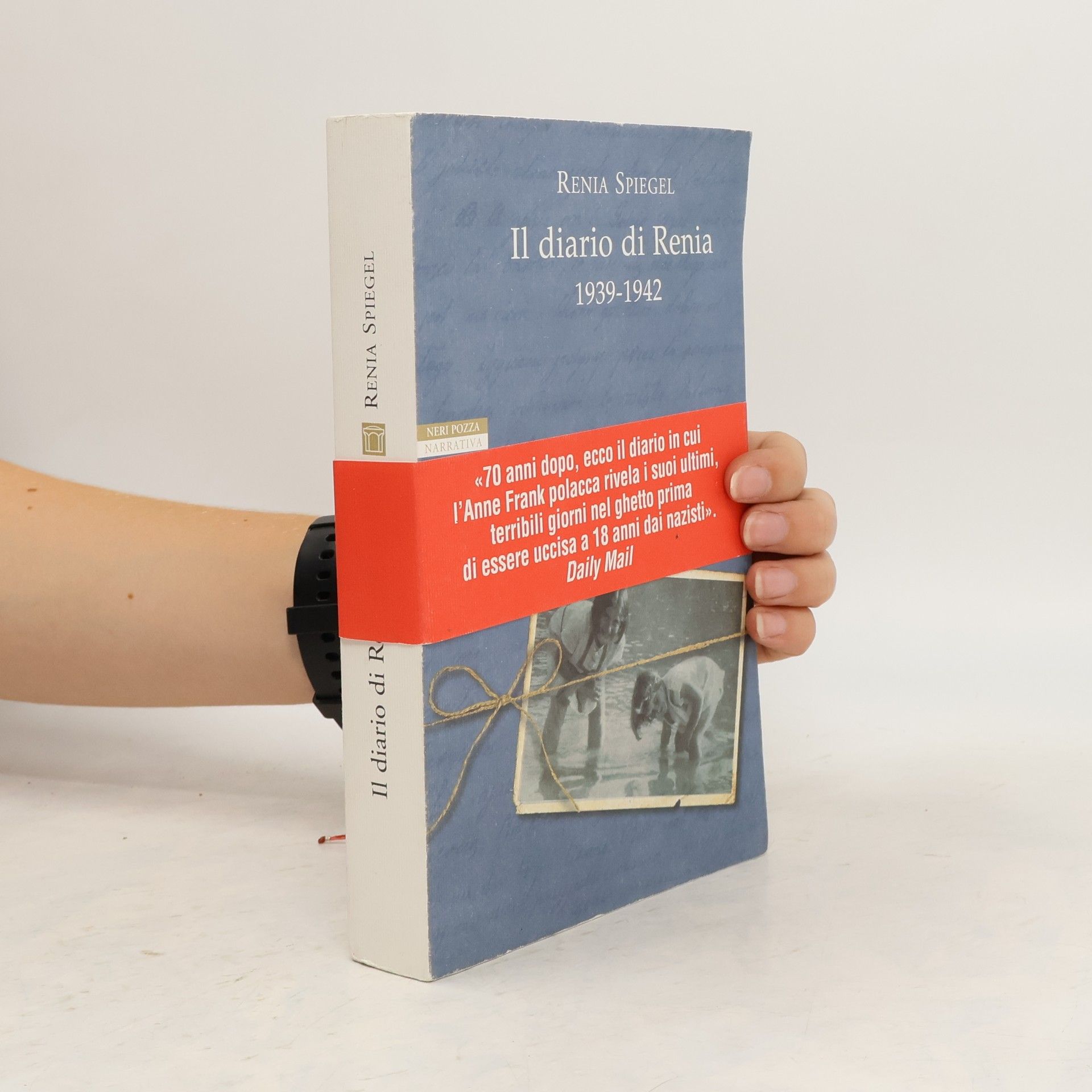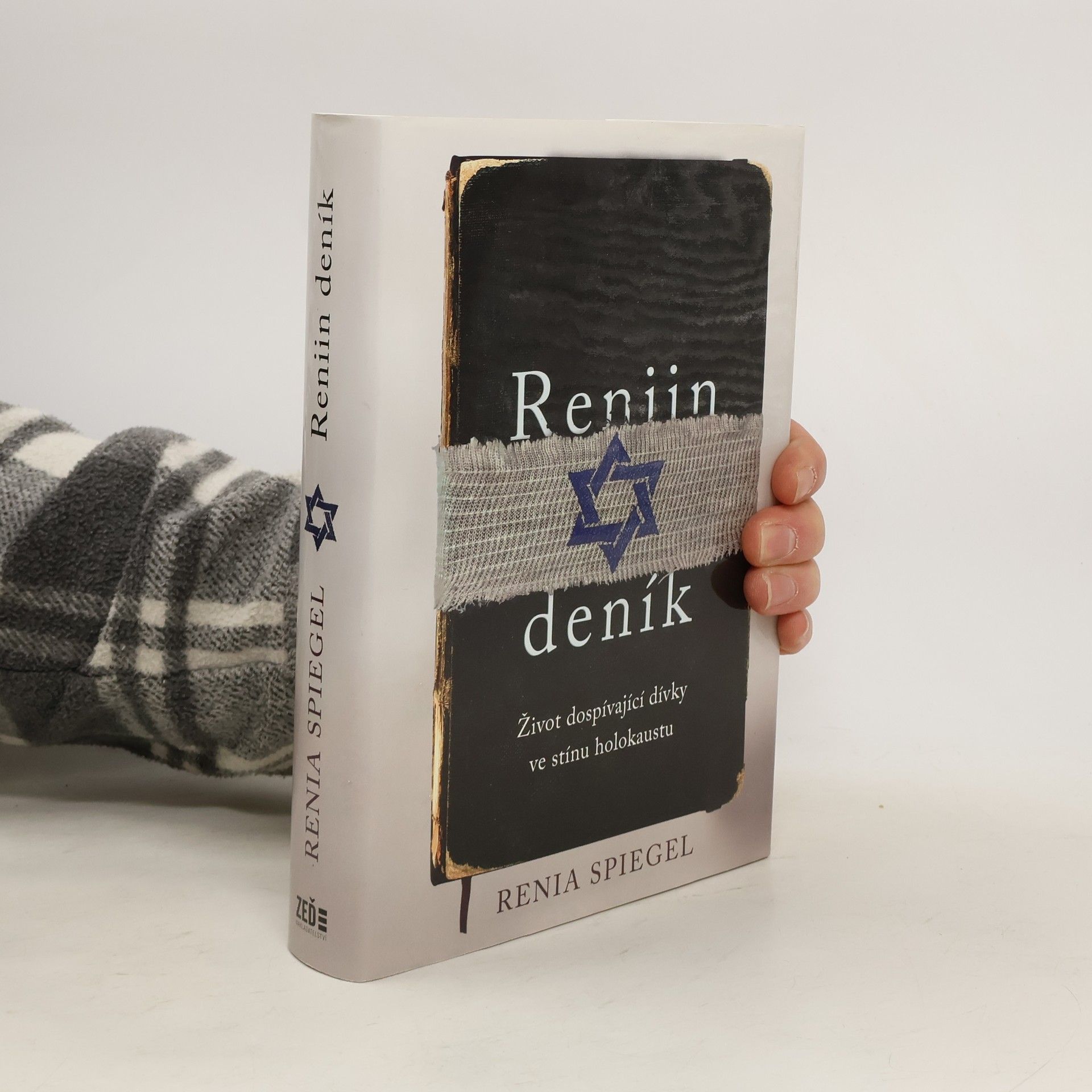15. července 1942, středa Pamatuj si tenhle den; pamatuj si ho dobře. Od dnešních 8 hodin jsme uzavřeni v ghettu. Tady teď žiju. Svět je ode mě oddělen a já jsem oddělena od světa. Renia, mladá dívka z Polska, sní o tom, že se stane básnířkou. Když v roce 1939 napadne její zemi Sovětský svaz a Německo, její svět se roztříští. Oddělená od matky prchá z Přemyšli před bombardováním, přihlíží mizení židovských rodin a stává se svědkem vzniku ghetta. Navzdory hrůzám války nachází Renia krásu ve svém psaní a poprvé se zamilovává. Se Zygmuntem si vymění první polibek těsně před tím, než jejich město dobydou nacisté. Zygmunt napíše poslední, srdcervoucí zápis do Reniina deníku. Reniin deník, objevený po sedmdesáti letech, je považován za klasiku literatury o holocaustu. Renia Spiegel je označována za „polskou Annu Frankovou“. Její psaní je mimořádným svědectvím o hrůzách války, ale také o životě, který může existovat i v nejtemnějších dobách. Renia se narodila ve východním Polsku v roce 1924 a začala si psát deník v lednu 1939. Válka ji oddělila od matky a přivedla ji do Přemyšle, kde zažila brutalitu Sovětů a později nacistů. V létě 1942 se musela ukrývat, aby se vyhnula deportacím do vyhlazovacích táborů. Nacisti její úkryt objevili a zastřelili ji, když jí bylo čerstvě osmnáct let.
Renia Spiegel Knihy






Renia's Diary
- 320 stránek
- 12 hodin čtení
Introduction by Deborah Lipstadt, author of Denial July 15, 1942, Wednesday Remember this day; remember it well. You will tell generations to come. Since 8 o'clock today we have been shut away in the ghetto. I live here now. The world is separated from me and I'm separated from the world. Renia is a young girl who dreams of becoming a poet. But Renia is Jewish, she lives in Poland and the year is 1939. When Russia and Germany invade her country, Renia's world shatters. Separated from her mother, her life takes on a new urgency as she flees Przemysl to escape night bombing raids, observes the disappearances of other Jewish families and, finally, witnesses the creation of the ghetto. But alongside the terror of war, there is also great beauty, as she begins to find her voice as a writer and falls in love for the first time. She and the boy she falls in love with, Zygmunt, share their first kiss a few hours before the Nazis reach her hometown. And it is Zygmunt who writes the final, heartbreaking entry in Renia's diary. Recently rediscovered after seventy years, Renia's Diary is already being described as a classic of Holocaust literature. Written with a clarity and skill that is reminiscent of Anne Frank, it is an extraordinary testament to both the horrors of war, and to the life that can exist even in the darkest times.
Tagebuch 1939-1942
- 480 stránek
- 17 hodin čtení
Als Renia Spiegel ihr Tagebuch begann, war sie noch keine fünfzehn Jahre alt und gerade zu ihren Großeltern nach Przemysl übersiedelt. Sie vermisste das väterliche Landgut und die Mutter, die sich mit der jüngeren Schwester Ariana häufig in Warschau aufhielt, um Ariana eine Bühnenkarriere aufzubauen. Auf rund 700 Heftseiten schildert Renia den Alltag im Gymnasium und Erlebnisse mit Freundinnen, bald aber auch das Leben und die Nöte in einer geteilten Stadt nach dem Einmarsch der Deutschen und der Sowjets. Vor allem schüttet sie dem Tagebuch ihr Herz aus und fasst ihre Empfindungen in berührende Gedichte. Ihre erste große Liebe zu dem Mitschüler Zygmunt wühlt sie innerlich auf, während um sie herum die Nazis vorrücken und die Schrecken des Ghettos über sie hereinbrechen.Zygmunt, der Zwangsarbeit und Lagerhaft überlebte, gelang es nicht nur, das Tagebuch vor der Zerstörung zu bewahren, sondern er ruhte nicht, bis er Renias Mutter in New York ausfindig gemacht und es ihr übergeben hatte. Wie durch ein Wunder ist uns so ein einzigartiges Zeitzeugnis erhalten geblieben.
Il diario di Renia 1939-1942
- 382 stránek
- 14 hodin čtení